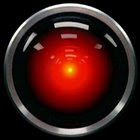Directed by: Andrzej Wajda
Starring: Zbigniew Cybulski, Ewa Krzyzewska, Waclaw Zastrzezynski, Adam Pawlikowski, Jan Ciecierski, Bogumil Kobiela
WARNING: Plot and/or ending details may follow!!!
WARNING: Plot and/or ending details may follow!!!
During WWII, two ideologically-opposed factions, the London-directed Home Army and the pro-Soviet People's Army, joined forces to defeat a common enemy, the Nazis. When the war came to an end in May 1945, however, so too did the groups' shaky alliance, and from momentary peace was suddenly sprung a whole new struggle for power. While a new Communist regime began to build its foundations in the shell-shocked Polish cities, the remaining Home Army rebels took to the forests, where they dutifully continued their liberation campaign using guerrilla tactics. If WWII itself is considered necessary – or, if not necessary, then at least justified given the Nazi menace – then this post-War skirmish is the ultimate waste of life, prompting murder on the grounds of mere ideology. In Andrzej Wajda's Ashes and Diamonds (1958), a weary Home Army youth, Maciek (Zbigniew Cybulski), faces an internal conflict between fighting political causes and living a normal life, not coincidentally the same dilemma facing the nation of Poland as the War came to a close.
 Wajda's film opens with an cold-blooded ambush, in which two concrete factory workers are needlessly gunned down in a case of mistaken identity. These shootings take place at the front steps of a country chapel, and with a child within earshot, highlighting the heartless resolve with which the Home Army rebels carry out their murders. However, despite the pro-Communist climate in which Wajda produced his film, he stops well short of demonising the "enemy" rebels, and, indeed, young Maciek is portrayed as the tragic victim of the story. In fact, the film goes to some length to emphasise the parallels between Maciek and Communist leader Szczuka (Waclaw Zastrzezynski), implying the needlessness of their conflict, and so the tragedy of their fatal opposition: both men fought valiantly against fascist dictatorships (the former in both Spain and Poland), and remember fondly the war comrades who died in pursuit of an ideal that, to both, should now be deemed realised. Instead, Szczuka dies in Maciek's arms as Poland celebrates its liberation.
Wajda's film opens with an cold-blooded ambush, in which two concrete factory workers are needlessly gunned down in a case of mistaken identity. These shootings take place at the front steps of a country chapel, and with a child within earshot, highlighting the heartless resolve with which the Home Army rebels carry out their murders. However, despite the pro-Communist climate in which Wajda produced his film, he stops well short of demonising the "enemy" rebels, and, indeed, young Maciek is portrayed as the tragic victim of the story. In fact, the film goes to some length to emphasise the parallels between Maciek and Communist leader Szczuka (Waclaw Zastrzezynski), implying the needlessness of their conflict, and so the tragedy of their fatal opposition: both men fought valiantly against fascist dictatorships (the former in both Spain and Poland), and remember fondly the war comrades who died in pursuit of an ideal that, to both, should now be deemed realised. Instead, Szczuka dies in Maciek's arms as Poland celebrates its liberation. Polish cinema reached its peak in the late 1950s, following the Khrushchev Thaw that saw an ease in Soviet censorship, and Andrzej Wajda was at the forefront of this cinematic New Wave. Jerzy Wójcik's stark black-and-white cinematography is elaborate and beautifully-executed, capturing the main character's claustrophobic isolation using closed sets and a cramped frame. The war itself took many prisoners, but Maciek – ironically a "freedom fighter" – finds his freedom restrained in a less overt manner. Even with the liberation of Poland, Maciek is obligated to continue his blood feud, denied the ordinary happiness offered by a life with pretty bar-maid Krystyna (Ewa Krzyzewska), with whom he spends a night. Cybulski's character squanders most of the film in boisterous, overcrowded surroundings, finding room to move only in fractured moments, such as a late-night stroll through the crumbling town ruins. Even in his death throes, Maciek stumbles through a cluttered wasteland of garbage, ultimately joining the detritus of the twentieth century's most costly conflict.
Polish cinema reached its peak in the late 1950s, following the Khrushchev Thaw that saw an ease in Soviet censorship, and Andrzej Wajda was at the forefront of this cinematic New Wave. Jerzy Wójcik's stark black-and-white cinematography is elaborate and beautifully-executed, capturing the main character's claustrophobic isolation using closed sets and a cramped frame. The war itself took many prisoners, but Maciek – ironically a "freedom fighter" – finds his freedom restrained in a less overt manner. Even with the liberation of Poland, Maciek is obligated to continue his blood feud, denied the ordinary happiness offered by a life with pretty bar-maid Krystyna (Ewa Krzyzewska), with whom he spends a night. Cybulski's character squanders most of the film in boisterous, overcrowded surroundings, finding room to move only in fractured moments, such as a late-night stroll through the crumbling town ruins. Even in his death throes, Maciek stumbles through a cluttered wasteland of garbage, ultimately joining the detritus of the twentieth century's most costly conflict.7/10
Currently my #5 film of 1958:
1) Vertigo (Alfred Hitchcock)
2) A Night to Remember (Roy Ward Baker)
3) Touch of Evil (Orson Welles)
4) Look Back in Anger (Tony Richardson)
5) Popiól i diament {Ashes and Diamonds} (Andrzej Wajda)
6) Cat on a Hot Tin Roof (Richard Brooks)
7) The Fly (Kurt Neumann)
2) A Night to Remember (Roy Ward Baker)
3) Touch of Evil (Orson Welles)
4) Look Back in Anger (Tony Richardson)
5) Popiól i diament {Ashes and Diamonds} (Andrzej Wajda)
6) Cat on a Hot Tin Roof (Richard Brooks)
7) The Fly (Kurt Neumann)





_poster.jpg)


No comments:
Post a Comment